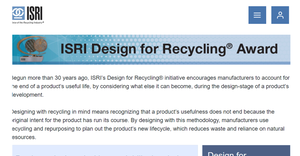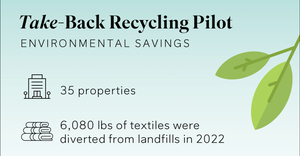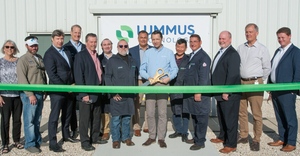October 1, 2004
Erin Spinka Associate Editor, and Stephen Ursery
THIS YEAR'S DEVASTATING hurricane season is reminding the solid waste industry what a challenge responding to storms can be. From bringing in workers from different parts of the country to dealing with gigantic piles of debris, helping communities return to normal following a storm often requires a Herculean effort.
Hurricanes Charley, Frances, Ivan and then Jeanne pounded Florida and other parts of the Southeast during the late summer. Reports have estimated that Ivan caused up to $10 billion in damage, and his two predecessors caused roughly $11 billion combined. Insurance losses from Jeanne are estimated at $5 billion to $9 billion, according to insurance experts. The destruction caused by the hurricanes has created the largest relief effort ever undertaken by the Federal Emergency Management Agency (FEMA), Washington, D.C. President Bush has asked Congress for at least $12.2 billion to help with storm recovery, according to The Associated Press.
Will Flower, a spokesman for Ft. Lauderdale, Fla.-based Republic Services, estimates that in the first couple of weeks after the storms, haulers were facing about six times the normal amount of waste. Republic Services, which provides hauling for about 60 communities that were hit by at least one hurricane, had trucks on the road virtually around the clock in the days after the storms, he adds. Communities typically turned to storm-debris specialists to help removal efforts. The city of Tampa ordered about 150 parks and recreation workers to aid in its cleanup effort.
The collection demands were such that in some communities throughout the affected area, haulers were picking up only part of residents' loads during each visit so that they could visit as many neighborhoods as possible.
Then, there's the issue of what to do with the debris once it's collected. Many communities hesitate to take up landfill space with tree limbs. Options include shredding or trench-burning the material, but equipment sometimes can become overwhelmed with the loads. At other times, the necessary electricity to power the machines was lacking. To make the recovery still more tedious, cities and counties have to keep detailed records to receive reimbursement from FEMA.
Republic Services, whose clients were not hit by Ivan, brought in 60 employees from six states to help the company's Florida workers with debris pickup after Charley and Frances, according to Flower. To aid in the effort, the firm also imported 40 of its vehicles from across the nation and rented others.
And, the company's extra steps did not stop there. Because hotel accommodations were so difficult to find when people lost their homes during the storm, Republic Services had to rent Winnebagos to house the out-of-state workers. With electricity scarce because of power outages, the company also has hired caterers in unaffected areas to bring in food.
“It's like moving a small army in there,” Flower says. Some of the firm's out-of-state workers will stay to help with the Jeanne cleanup, while reinforcements will be sent in to take the place of those who head home.
Unfortunately, for solid waste workers, their ordeal may not be over. Hurricane season lasts through the end of November.
You May Also Like


